When we first came to Aotearoa, we wanted to make sure we were helping to look after this incredible country. At first, we weren’t sure where to start, in the end we decided it was best to start with ourselves and our own eco-habits and let our impact evolve out from there.
Living in a van makes you super aware of your rubbish and waste. There’s no wheelie bin to put our rubbish into and place at the front of our house once or twice a week for the garbage drivers to ‘take away’. When you live in a van, you have to be the one to sort your rubbish and make sure it’s disposed of correctly. It’s not always easy to find somewhere to throw it out either, and finding the proper recycling bins gets even harder when you live on the road.
Being so aware of reducing your own rubbish or waste has this weird knock on effect of making you super aware of rubbish in general. The more we cut down on our own ‘household’ waste, the more we noticed it strewn about towns and the places we were visiting. Thus began our journey of picking up trash on our travels and fulfilling part of our desire to help look after Aotearoa.
Be sure to check out our Instagram to see more of our adventures around Aotearoa!
Look At Yourself!
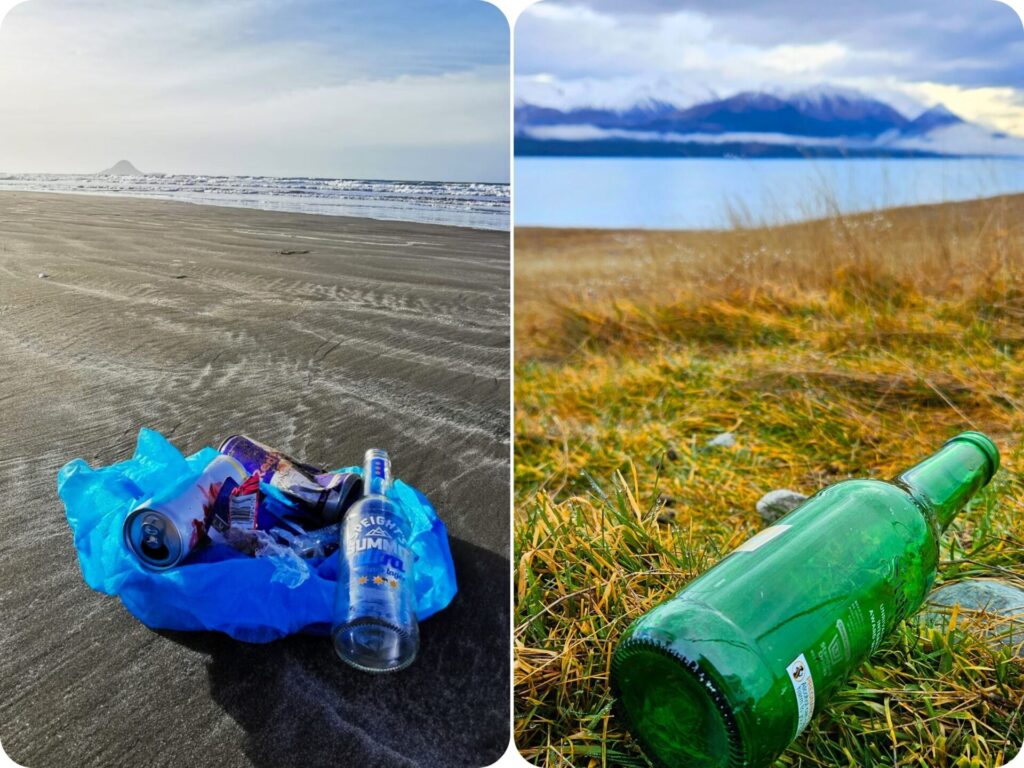
Before we delve into picking up rubbish on the road, let’s talk a bit about reducing the amount of rubbish we create ourselves. In the 2023/2024 financial year, the average kiwi disposed of 608kg of rubbish or ‘waste’. For two people living in a van, that would equate to 1,216kg of waste that we need to carry around and then dispose of ourselves!
That’s a lot of time looking for a bin when you could be hiking or swimming or doing literally anything else in your itinerary.
We learnt pretty early on in our travels that finding somewhere to throw out our rubbish wasn’t really a priority for us. To stop our bins smelling and to get rid of the need to find a tip or recycling centre too often, we opted for minimising our rubbish in the first place.
Start by ensuring you have at least 3 household bins, one for food scraps/compost, one for recyclables and one for everything else. From there, spend a week without changing anything and take note of what it is you’re throwing out. Do you have a bunch of takeaway containers? Are you not eating all the food you’re buying? Are you buying food with unnecessary packaging? Once you know a bit about your waste, you can start to change it!
Better In Bulk
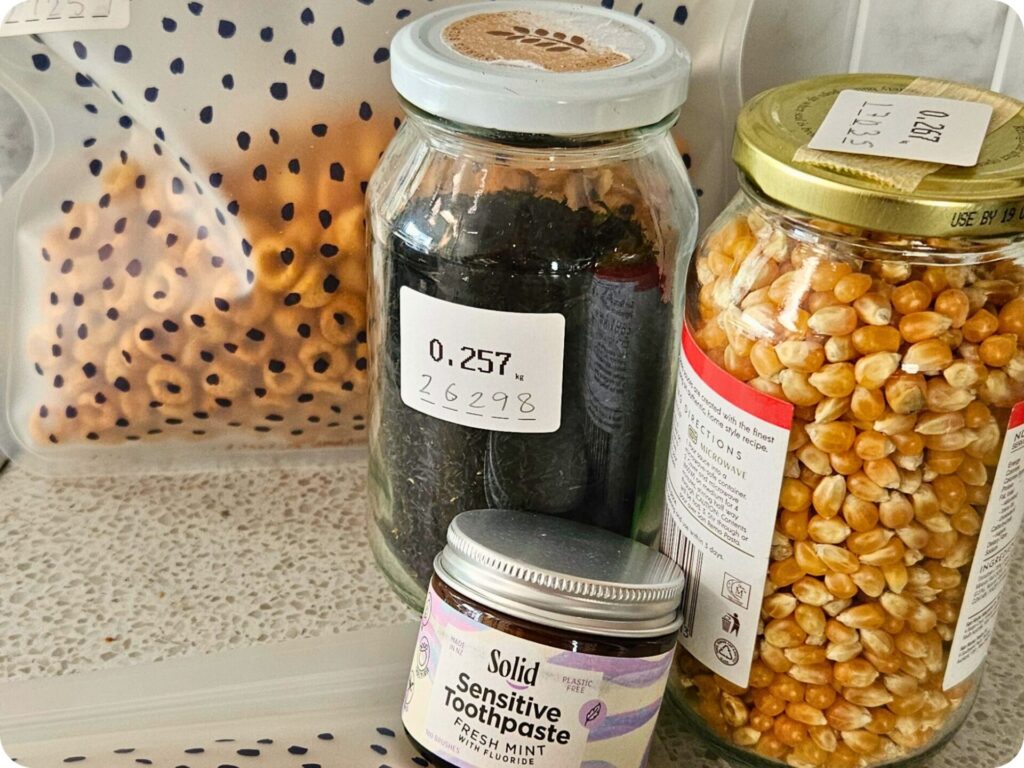
We switched to buying more of our fruit and veg from local green grocers and farmers markets, all places that avoid unnecessary packaging. Bulk food stores like Bin Inn became our best friend! We now have plenty of jars rescued from bins that we fill up with all kinds of goodies like rice, cereal, tea and even flour that are now package free.
We’ve made changes to how we buy shampoo, soap, toothpaste, laundry detergent and dishwashing liquid. Likewise, we buy all of this at refill stations/stores or in the case of shampoo and conditioner, we get bars.
All of this means we have significantly reduced the packaging that goes into our bins. With all this space in our bins, we noticed we weren’t worrying about finding somewhere to dispose of it any more. We can go weeks, sometimes even a month, without having to empty our bins.
But don’t they smell after that long?
Well no, our two big bins (by big I mean a 30 litre kitchen bin, not a big wheelie bin) don’t get food scraps in them and to make sure our recycling can actually be recycled, it gets rinsed before going in the bin. Food scraps we do empty more regularly, perhaps twice a week we’ll take our little 7 litre bin to a compost bin at a community garden or gift it to someone on ShareWaste to use in their compost. But having a small fridge and buying only what we use means there really isn’t a lot of food waste, only food scraps like apple cores, coffee grounds, etc.
So now that you have some extra room in your bins, let’s fill them up with rubbish that’s harming our land, waterways and wildlife.
Make It Look Better Than You Left It
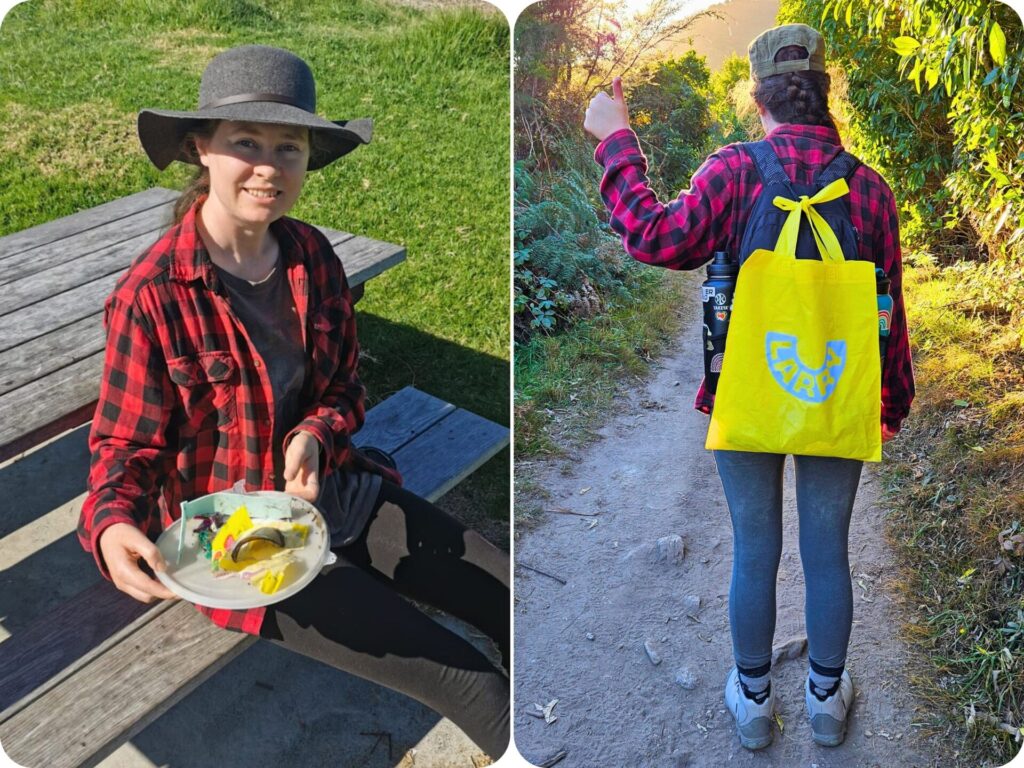
It’s been over a year since we began consciously looking out for trash on our travels, and we’ve picked up some weird habits and items along the way. We now make sure to hike with an empty tote bag and a pair of gardening gloves so we can pack out any trash we find along hiking trails.
Be sure to pack something to clean your hands with after picking up rubbish, too. We opt for either some hand sanitiser or when we are super prepared a wet wash cloth in a ziplock bag with some soap to really clean dirty hands.
When we pick up rubbish on hiking trails it’s normally smaller items like small bits of foil from snacks or lolly wrappers, but we often come across empty beer bottles and cans too. It’s really satisfying leaving a hike knowing you’ve done a little bit extra to keep the trail clean and protect the natural flora and fauna of the area.
Picking up rubbish on hikes is our way of taking ‘leave no trace’ to the next level.
Seriously? There’s A Bin Right There!
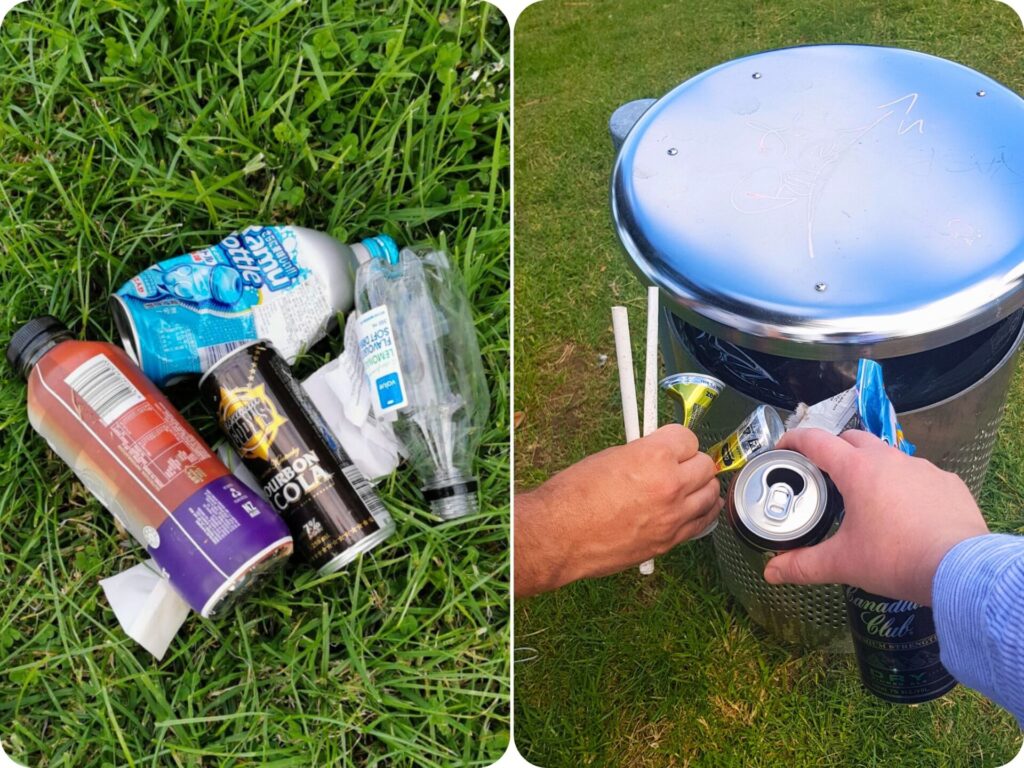
Picking up rubbish in towns and local parks is generally easier than hiking trails, as you can find public bins to put it in as you pick it up. We don’t often wander around with a spare bag to put rubbish in when we are exploring a city, although sometimes I do think we should start, as public bins can be few and far between.
We often end up carrying the rubbish for a bit to find a bin, this in itself can limit the amount of trash we pick up as you can only carry so much at once. Other times you’ll notice rubbish sitting very close to empty bins, and that just makes it super easy to get off the street!
It’s crazy how often we’ll find rubbish within a meter of a bin, a few times we’ve found it sitting literally next to the bin. Why no one bothers to put it in a bin we haven’t figured out yet.
Other weird things we’ve found picking up rubbish include: an entire chicken carcass in its plastic packaging, a half full milk bottle and a Tupperware lid, just to name a few. Socks, ripped shirts and the rim of a bucket hat are among the weirder clothing items we’ve found left on the ground.
Sadly, they’ve all been too worn and tattered to reuse. However, we have found some trash that we’ve kept along the way.
One Person’s Trash Is Another’s Treasure
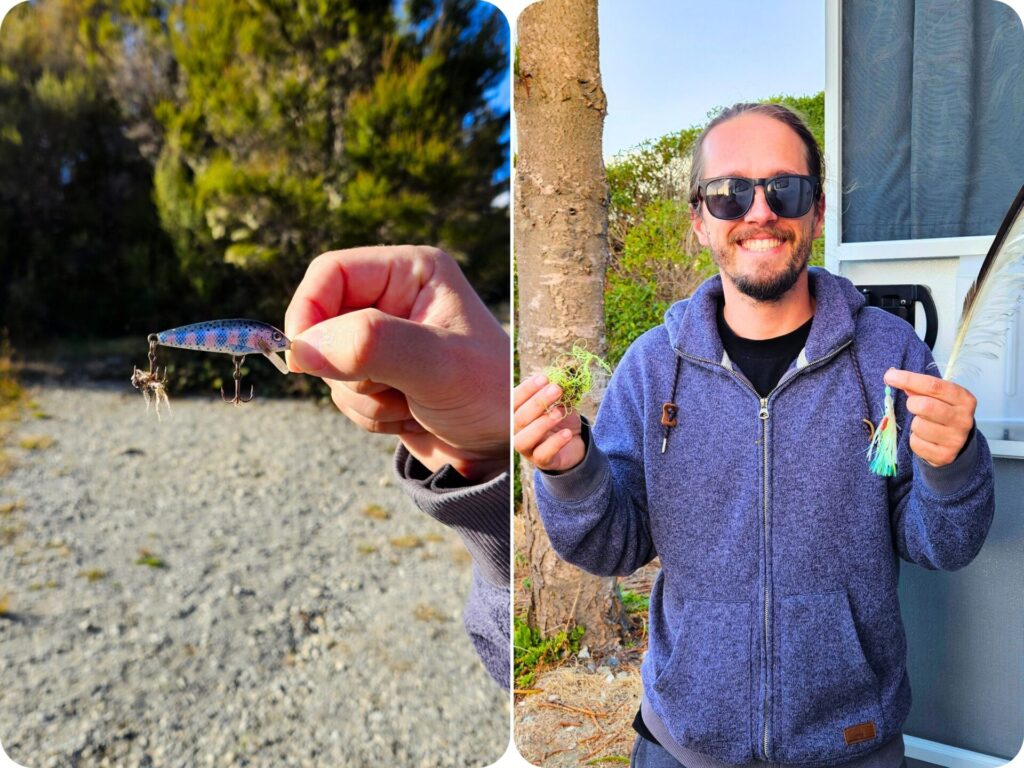
We don’t always take the rubbish we find to the nearest bin or recycling point. Sometimes we get to keep what we pick up! Sea glass is among our favourite trash to pick up, as it’s so pretty and reminds us of the many beaches we’ve been able to explore.
We try our best not to pick up shells as it disrupts the natural ecosystem, seas glass is the best way for us to remember a beach and help clean it up in the process! Another great find along beaches and rivers is old lures and fishing line. Nathan’s scored 3 lures to date and plenty of tangled line that he cuts lengths of to make up various fishing rigs.
The funniest place we’ve found a lure is tangled in a tree by a river! Why whoever got it tangled didn’t bother getting it out we have absolutely no idea. Lures aren’t that cheap, and Nathan has been known to go for a swim just to get one back!
Your Loss Is Our Gain
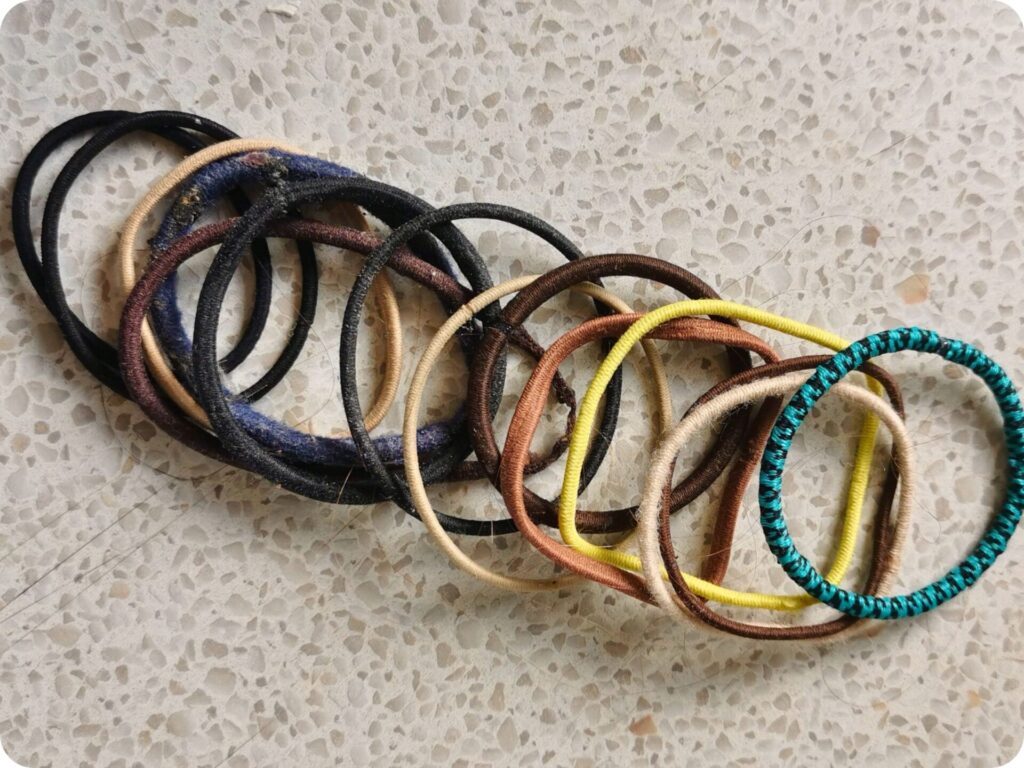
Fishing gear isn’t the only thing you’ll start to find for free when you make an effort to pick up rubbish. Since reading Ethically Kate’s book ‘Better, Bolder, Different’ we’ve picked up the tip of saving all the hair ties you find on the street, washing them, and then using them for ourselves.
Gone are the days of Nathan stealing Tiff’s hair ties. He has a found collection of his own now.
On a small trip exploring Dunedin, we picked up 5 hair ties. Honestly, we have started to collect more than we need. The ground really is a free hair tie store, and if you’re lucky you might even find a scrunchie there.
Our best find, though, has been a yellow beanie. Found on a short walk on the way to Glenorchy, it was a bit wet and sad when we found it but after a wash it’s come up perfectly and has been added to Tiff’s wardrobe.
You really never know what you’ll find lying around on the ground. Whether it’s been accidentally forgotten or has been thrown out carelessly, we find joy in picking it up and cleaning our shared spaces in the process.
Small Changes Quickly Become Habit
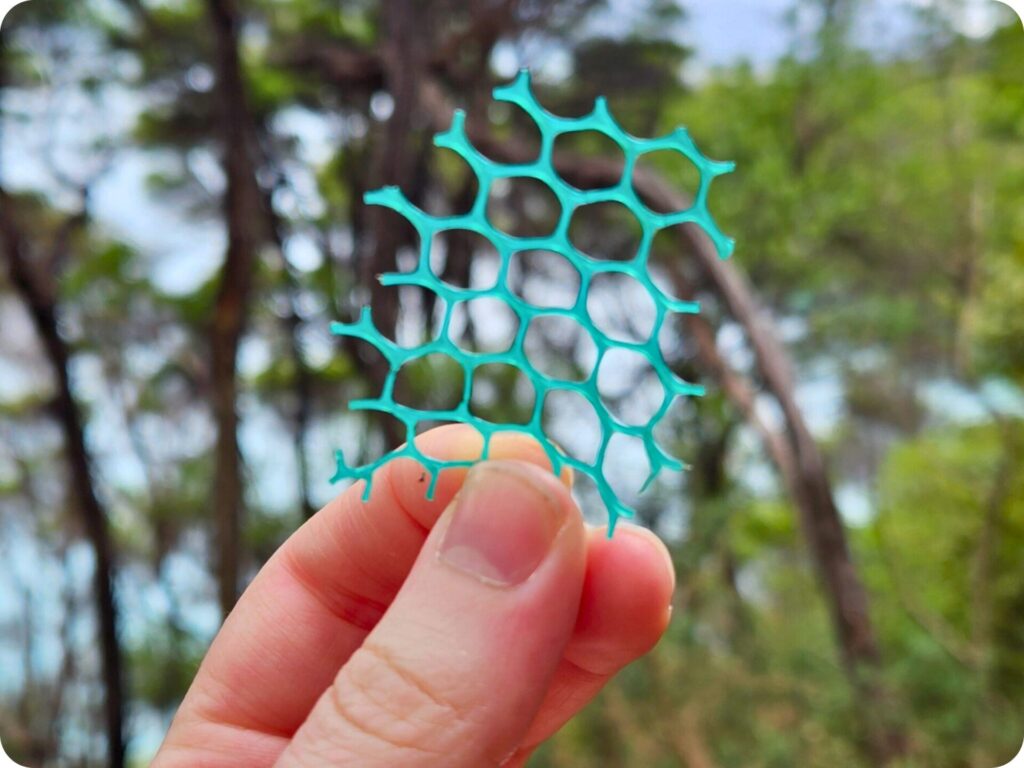
Finding things you can keep and use for yourself is like the universe’s way of thanking you for cleaning up as you go about your travels. As soon as you start to make an effort to notice the odd bit of rubbish and pick it up, you’ll start to notice even more.
It’s gotten to a point now where we just automatically pick things up when we see them.
We’ve had friends get confused when we randomly stop and bend down mid-walk to grab something shiny or save a hair tie. We’ve even started to get friends pointing out hair ties to us if we miss them!
So make a small conscious effort for a month to pick up rubbish when you can. You’ll be surprised at how quickly it just becomes a habit. Just remember to dispose of it correctly, keep yourself safe by not picking up sharp objects and clean your hands after picking up trash.
Together, our small difference will amount to a cleaner planet.
Keen for more inspo? Be sure to check out:
- Step into Sustainability: The Ultimate Guide to Eco-Conscious Hiking Boots
- 10 Eco-Conscious Vanlife Tips for a Greener Journey
- Eco-Conscious Travel Tips That Anyone Can Implement
